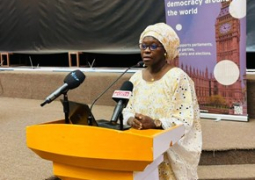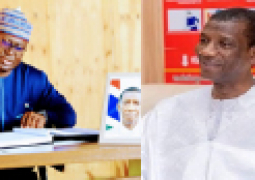The welfare of Gambian citizens is anchored on a number of national factors, some of which are critical to their survival in the development process. Among these factors are Land, Environment, Water, Energy, Health, Food, Roads, and Transportation.
The issues of the exploitation of our water resources and the destruction of the environment have been well articulated by the public. The affected communities have put in the forefront the poverty and hardships they continue to endure on a daily basis due to the exploitation of fisheries resources by foreign operators, pollution in the sea due to rotten fishes being dumped by factory owners, hazardous conditions created by the fishmeal factory in Gunjur, fish shortages for domestic consumption, exorbitant prices, and the destruction of the forest cover in Njambai, Sanyang, Monkey Park area, Salagi, etc. Recently, the infiltration of the Denton Bridge creek area by foreign fishing vessels has been posing a threat to the breeding ground of our fish resources.
With all the glaring examples, fisheries authorities continue to be loud-mouthed in defending the indefensible. They are not by any measurement standing firmly to defend the welfare of Gambians in the fishing industry. Foreign operators in this aggression against the national interest continue to do what they want knowing the moral authority of the officials has been compromised. To this day, Gambians still wonder why, among all the buildings on Marina Parade in Banjul, it was the Fisheries Ministry that was burnt down. We are still yet to see any government inquiry report into the incident. We expect to see government pronouncement on the matter as it is of public interest.
Concerning the ongoing environmental destruction that threatens wildlife, natural species and the human survival, what concrete steps have been taken to redress the situation and to protect the welfare of citizens? One might wonder whether The Gambia is for sale under these circumstances. It seems protecting the welfare of Gambian citizens at home has become a formidable challenge in the administration in New Gambia. Sadly enough, the issues raised above are common knowledge and the truth. However, the politics of flip-flopping, which has become the norm in this era, is standing in the way of progress and aggravating poverty in the country. There is so much intellectual hypocrisy and lack of professionalism in the system which is tearing society apart.
The promise of decent and rewarding dividends for the welfare of citizens in this era is becoming farfetched. Gambians acknowledge and appreciate the donor aid being given to the country by foreign countries. However, Gambians should not be taken for granted. For anyone to assume that Gambians should drink poison just because they are thirsty will be a big mistake. When the day of reckoning comes, many will be carried along in the wake of change. The exploiters of the economy and their collaborators must reflect seriously over their actions.
Educated officials in the system must bear responsibility equally for any failures. Education is of no value if it cannot build a sound character. Those in charge of the various sectors of the economy are under the obligation to serve the people and to serve them well.
By: D.M. Badjie
Political Scientist/Dev. Consultant
Read Other Articles In Opinion
CHINA SHAMES AFRICA
Apr 29, 2020, 1:52 PM




